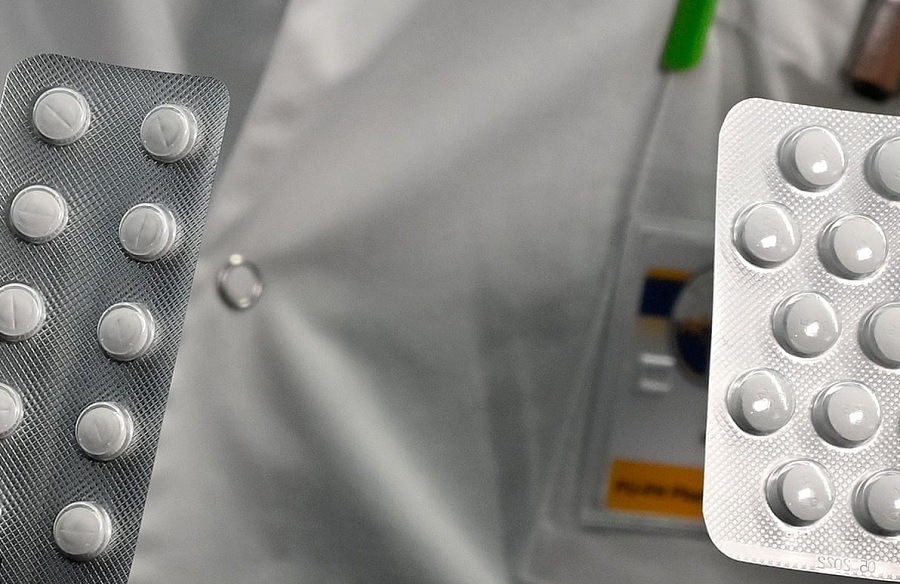RIO DE JANEIRO, BRAZIL – A scientific study published in the renowned ‘The Lancet’ magazine with 96,000 patients shows that hydroxychloroquine and chloroquine have no benefits in the treatment of Covid-19. The findings released on Friday, May 22nd show that there is no improvement in the recovery of infected patients, but a higher risk of death and cardiac deterioration during hospitalization by Sars CoV-2.
Data from the study published by The Lancet:
- 96,032 hospitalized patients were observed;
- Mean age of 53.8 years with 46.3 percent female;
- Patients from 671 hospitals in 6 continents;
- 14,888 patients were administered four different types of chloroquine and hydroxychloroquine therapies;
- The hospitalizations occurred between December 20th, 2019, and April 14th, 2020.

The group of scientists compared the results of 1,868 people who were administered only chloroquine; 3,016 who received only hydroxychloroquine; 3,783 who were given a combination of chloroquine and macrolides (a class of antibiotics); and a further 6,221 patients using hydroxychloroquine and macrolides.
The control group, which served as a comparison and did not take the drugs, comprises 81,144 patients. At the end of the period, one out of 11 patients in the control group had died – 7,530 people (9.3 percent).
All four types of treatment with the drug were associated with a higher risk of dying in the hospital, as shown by the following:
Of those who were only administered chloroquine or hydroxychloroquine, approximately one in six patients died – 307 people took chloroquine (16.4 percent), and 543 people took hydroxychloroquine (18 percent).
Of those who took chloroquine or hydroxychloroquine along with macrolides, about one in five patients died – 839 deaths (22.2 percent) from those taking chloroquine with antibiotics and 1,479 (23.8 percent) from those taking hydroxychloroquine with antibiotics.
Scientists excluded factors that could influence the results, such as age, race, body mass index, and other associated conditions (heart diseases, diabetes, and lung diseases).
According to the study’s authors, patients treated with the substances also presented a higher risk of developing cardiac arrhythmia. The highest rate was found in patients who were administered hydroxychloroquine in combination with antibiotics: eight percent or 502 people in a group of 6,221. The control group, which did not receive the substances, recorded a rate of 0.3 percent.
This is the most extensive study of infected patients hospitalized with Covid-19 and the prescription of chloroquine and hydroxychloroquine.
The World Health Organization (WHO) stated on Wednesday, May 20th, that the substances can produce side effects and are not effective against the disease. Marcos Espinal, director of the PAHO’s Department of Communicable Diseases, also said that “there is no evidence to recommend chloroquine and hydroxychloroquine.”
“This is the first large-scale study to find statistically solid evidence that chloroquine or hydroxychloroquine treatment does not benefit Covid-19 patients,” said author Mandeep Mehra, research leader and director of Brigham and Women’s Hospital Center for Advanced Heart Disease in Boston, USA.

Regardless, scientists argue that there is a need for further international research to prove the data and a final analysis. For the time being, therefore, there is no evidence that the substances help to fight Covid-19.
New York study has ambivalent results
On May 8th, “The New England Journal of Medicine” published its first solid international results on the possible effectiveness of hydroxychloroquine treatment in patients hospitalized with coronavirus. According to the authors, no evidence was found that the drug reduced the risk of intubation or death.
The peer-reviewed research before publication was conducted at Presbyterian Hospital in New York, and observed patients who tested positive for the virus. All patients presented a moderate to severe condition, characterized by a blood oxygen saturation level of less than 94 percent. A total of 1,446 people were admitted with the disease between April 7th and 8th, 2020, and 70 of them were excluded because they had already been discharged, died, or were intubated.
In its summary, the Report stated that, “Given the observational design and the relatively wide confidence interval, the study should not be taken to rule out either benefit or harm of hydroxychloroquine treatment. However, our findings do not support the use of hydroxychloroquine at present, outside randomized clinical trials testing its efficacy.”
Until the beginning of May, there were no more effective studies on the use of these drugs. The first study published was conducted in France and analyzed 26 patients, but excluded six of them whose condition worsened after the use of the drug. Although some of the infected patients showed an improvement in their health, the small group’s removal made it challenging to interpret the data. The scientific community highly criticized the research.
Protocol for use in Brazil
On Wednesday, the Brazilian Ministry of Health released a document that guides the use of hydroxychloroquine in the country in patients infected by Sars CoV-2. On Thursday, May 21st, a new version was edited with the signature of the portfolio’s Health Secretaries.
The change in protocol was desired by President Jair Bolsonaro, a chloroquine advocate in the treatment of the disease caused by the novel coronavirus. There is no scientific evidence that chloroquine can cure Covid-19. Other international studies have found no efficacy in the drug, and the Brazilian Society of Infectology does not recommend its use.

The chloroquine protocol was the cause of friction between Bolsonaro and the last two Ministers of Health, Luiz Henrique Mandetta and Nelson Teich. In less than a month, the two left the government.
The Ministry’s text upholds the need for the patient to authorize the use of medication and for the doctor to decide whether or not to administer it. Chloroquine is not available to the general public.
Source: G1

